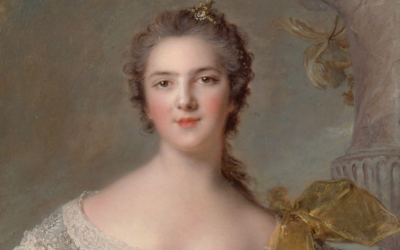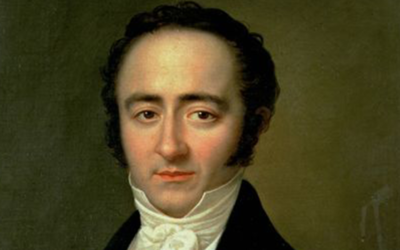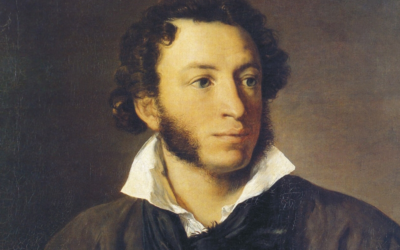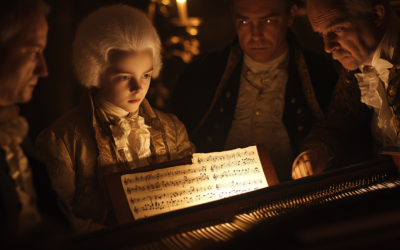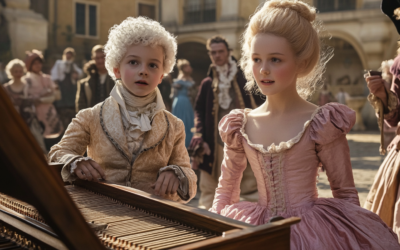Leopold Mozart
The Ambiguous Legacy of Leopold Mozart: A Man of Cunning and Adaptation
This post explores the multifaceted and often controversial life of Leopold Mozart, providing insight into the complexities and contradictions that defined his career and legacy.
Mozart in Italy: The Untold Story
Was Mozart truly a solitary genius, or was he merely the instrument of his father’s ambition? “Mozart in Italy” challenges the conventional narrative, revealing a complex dynamic between father and son that shaped the course of music history. Prepare to question everything you thought you knew.
“In a letter now astounding for its falsehoods, Leopold lied about his still-living father, claiming the old bookbinder had sent him to Salzburg for studies (avoiding mention of that academic disaster)”
Mozart in Italy
Leopold Mozart, often overshadowed by the brilliance of his son Wolfgang, led a life marked by ambition, cunning, and a series of compromises that both defined and limited his legacy. Despite his lifelong service under five archbishops and seven Kapellmeisters in Salzburg, Leopold never rose above the rank of deputy Kapellmeister. His musical training was largely self-taught, honed through practical experience rather than formal education, which limited his ascent in the highly competitive world of 18th-century music.
Leopold’s career was not without its share of scandals and setbacks. One of the most infamous incidents was his anonymous pamphlet that mocked a cathedral canon—a move that nearly destroyed his reputation. This public humiliation left him deeply scarred and fuelled a newfound cynicism. In a bid to restore his standing, Leopold crafted another anonymous work, this time targeting his fellow musicians in Salzburg. Posing as a newly arrived music lover, he cleverly promoted his own talents while subtly undermining his colleagues. This act of self-promotion, laced with fabrications about his expertise in counterpoint, philosophy, and law, was a testament to his resourcefulness, even if it came at the cost of honesty.
Leopold’s self-aggrandising efforts extended beyond pamphlets. His 1756 publication, “Violinschule,” is often regarded as his most significant contribution to music. Yet, even this work was not entirely original, heavily borrowing from the methods and teachings of other composers like Pietro Antonio Locatelli, Francesco Geminiani, and Giuseppe Tartini. Leopold presented these insights as his own, with little to no acknowledgment of the true sources. This act of appropriation reveals a man who, while not a virtuoso or a celebrated composer, knew how to adapt and repurpose the work of others to fit his ambitions.
Despite these efforts, Leopold struggled with professional frustration. His aspirations for greater recognition were frequently thwarted, and he found himself relegated to the modest court orchestra in Salzburg. To make ends meet, he supplemented his income by giving private lessons, copying scores, and selling compositions—some of which were likely cobbled together from the works of others and passed off as his own. His correspondence with his publisher, Lotter, paints a picture of a man constantly scrambling to maintain his reputation, often at the expense of integrity.
Leopold’s relationship with his family was equally complex. His manipulation of his mother for financial gain, his secret marriage to Anna Maria Pertl, and the subsequent estrangement from his family in Augsburg reflect a man who was willing to deceive those closest to him to achieve his goals. This rift was painfully evident when, years later, his grandchildren, Wolfgang and Nannerl, performed in Augsburg without their grandmother present in the audience.
In the end, Leopold Mozart’s life was a testament to survival in a world where his talents were often overshadowed by those of his more gifted contemporaries and his own son. While his “Violinschule” remains a notable contribution to music pedagogy, it is clear that Leopold’s legacy is as much about his ability to navigate the challenges of his time as it is about his musical achievements. His story is one of ambition, adaptation, and the lengths to which one man would go to secure his place in history, even if that place was built on borrowed foundations.
You May Also Like
Mozart and the Nationalist Illusion: The 1931 Festival and Its Legacy
The Salzburg Festival, far from being a mere celebration of Mozart’s genius, was born out of nationalist ambitions during a turbulent period in Austro-German history. Conceived by figures like Max Reinhardt, Heinrich Damisch, and Friedrich Gehmacher, the festival was deeply rooted in ultranationalistic ideals, transforming Mozart’s legacy into a tool for cultural dominance. The truth behind its founding has long been obscured, but the primary sources tell a different, darker story.
K.6 and K.7 Sonatas: A Fabricated Genius?
The earliest sonatas of Wolfgang Amadeus Mozart, K.6 and K.7, are traditionally seen as proof of his precocious genius. But as we explore the murky origins of these works, we find that they may be more a product of Leopold Mozart’s ambition than Wolfgang’s musical talent. The truth, as always, lies somewhere between the notes.
Georg Nissen and the Missing Notebooks – Part II
This second part delves deeper into Georg Nissen’s scheme to expose the truth about Mozart’s death, and the roles of Constanze Mozart and her sons in keeping it buried. As new details emerge, the mystery surrounding the famous composer’s final days grows even darker, with powerful forces potentially at play.
Mozart and Salieri
Pushkin does not see Salieri as a mere mediocre. In fact, Salieri embodies the struggle of the artist, much like Michelangelo, who reaches greatness through relentless effort. Pushkin himself identifies with both Mozart and Salieri, but he emphasises that true art demands work, discipline, and sacrifice. In poisoning the Mozartian element within himself, Salieri performs a service to art, freeing it from the frivolity of effortless genius. ‘Can genius and malice coexist?’ Pushkin’s answer is complex, but in the end, Salieri’s act seems to affirm that true creation lies in the hands of those who strive.
The Fabrication of Genius
Leopold Mozart’s tireless efforts to promote his son Wolfgang as a child prodigy were rooted in manipulation, exaggeration, and a relentless drive for social success. Far from being a miraculous genius, Wolfgang was pushed into the spotlight by his father, whose grandiose claims often obscured the reality of his son’s abilities.
The Myth of Mozart
A critical examination of Wolfgang Amadeus Mozart’s life reveals a man shaped more by his father’s ambitions than by innate genius. Stripped of the myths, Mozart’s early years reflect a childhood dominated by relentless touring, inconsistent education, and a legacy built on exaggerated achievements. Discover the real story behind the legend.



